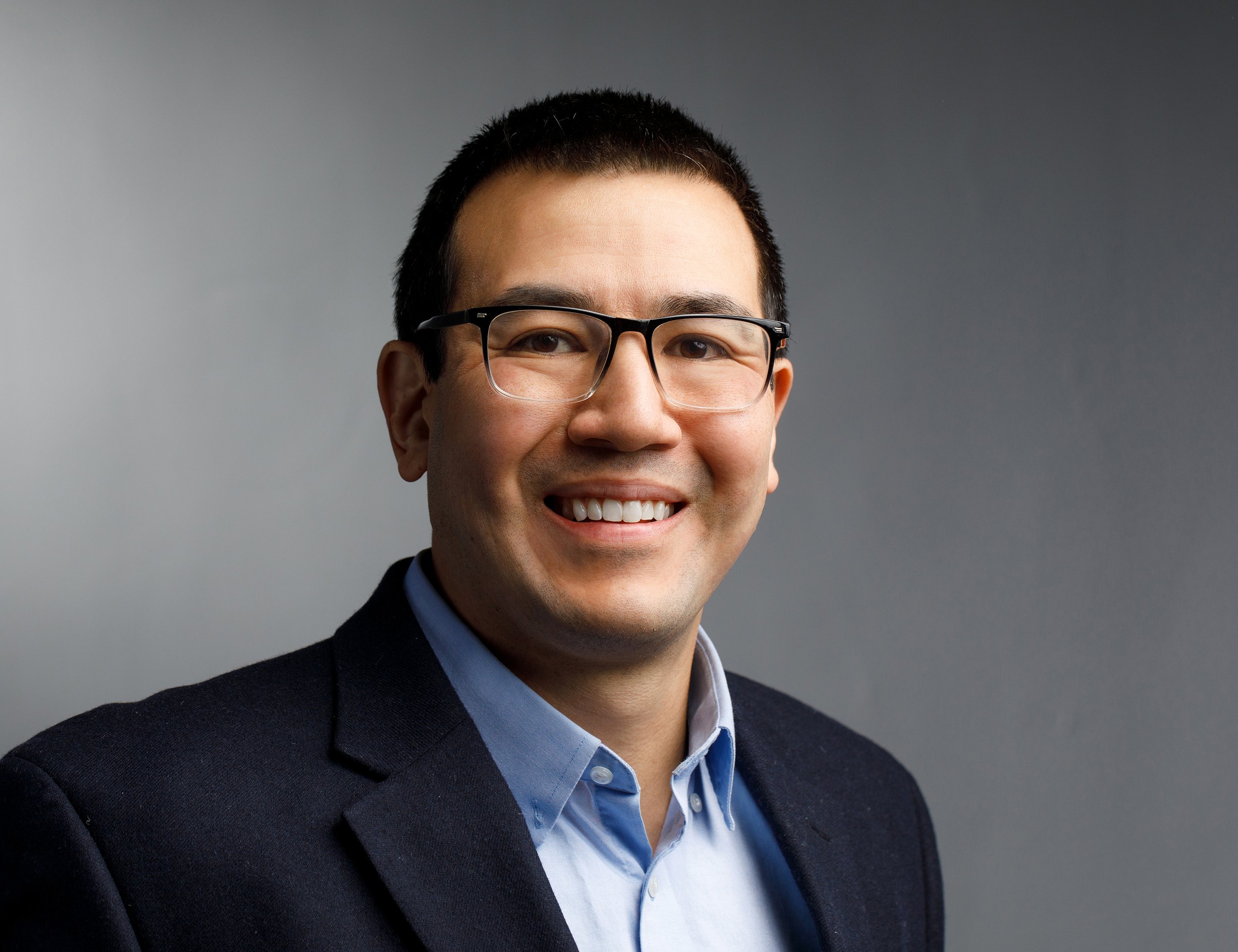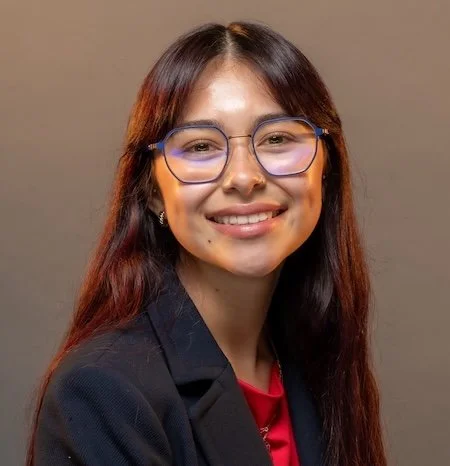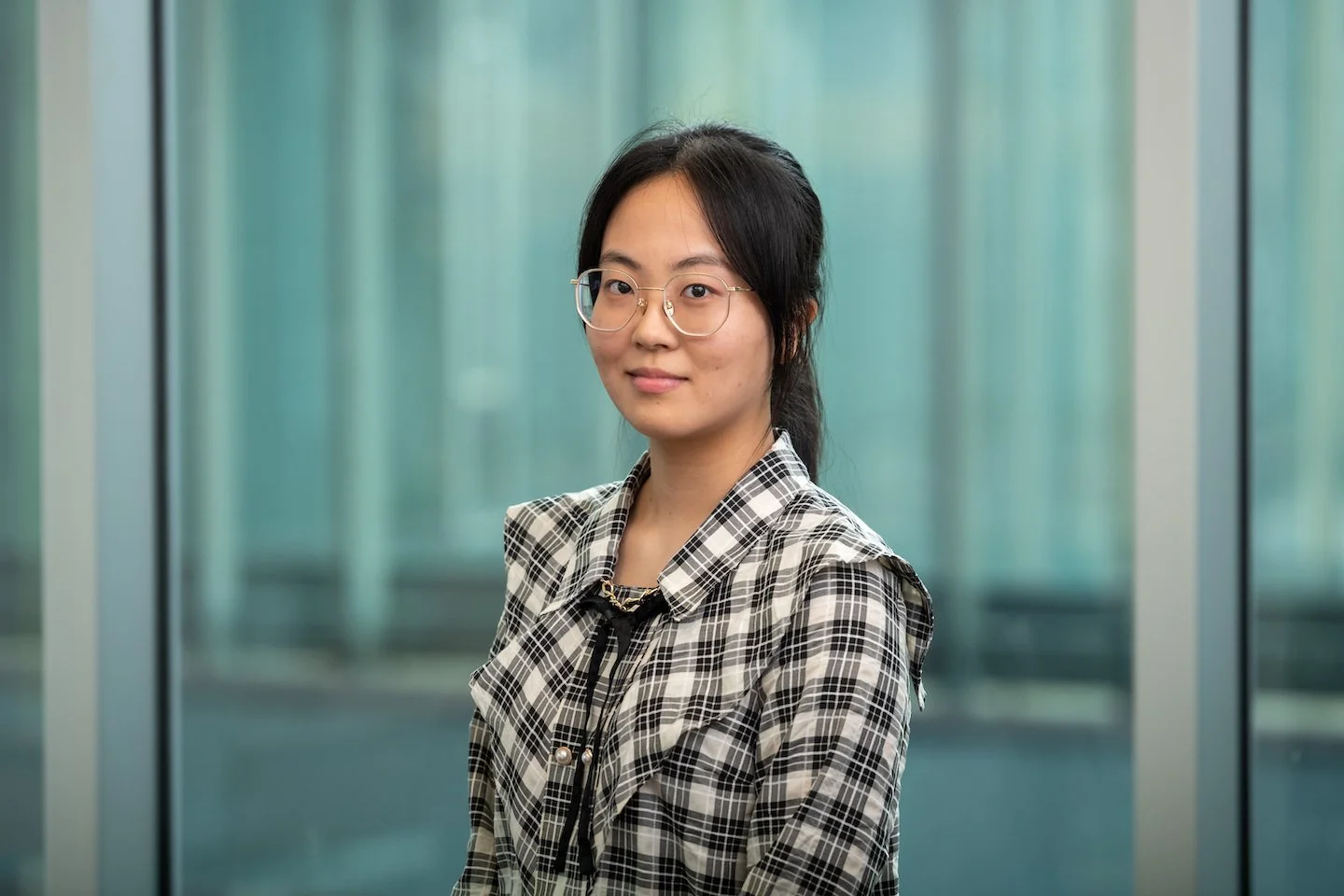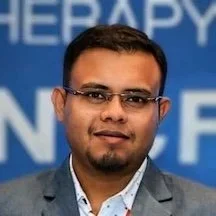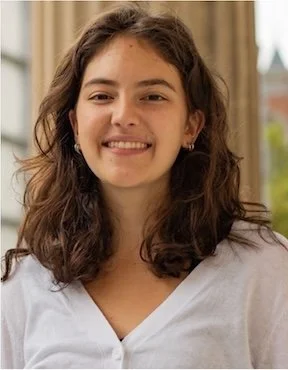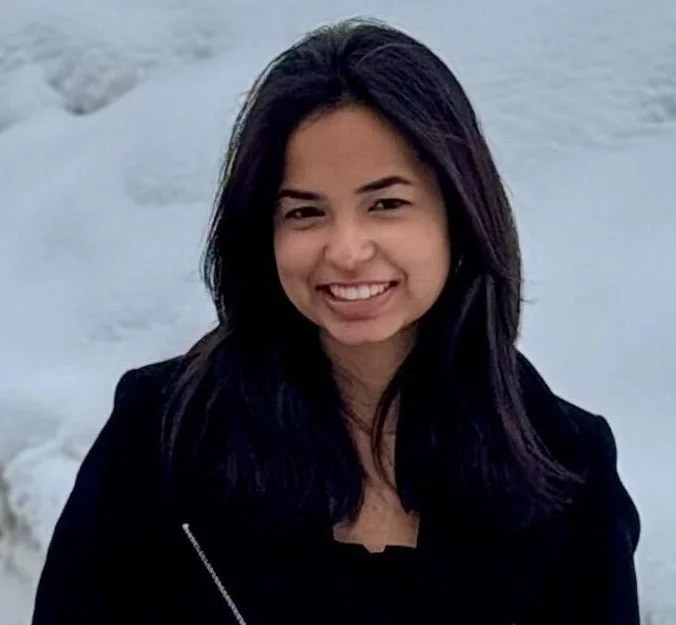Current Lab Members
Jeffrey Ishizuka (principal investigator) earned his D.Phil. in immunology studying CD8+ T-cell immunodominance and cross-reactivity with Sir Andrew McMichael at Oxford University and Jon Yewdell at the National Institutes of Health. He completed medical school at Harvard, internal medicine residency at Brigham and Women’s Hospital, and medical oncology fellowship at the Dana-Farber Cancer Institute before doing a post-doc in Nick Haining’s laboratory. Following his post-doc he opened his own lab at Yale where he continues to see patients with melanoma and renal cell carcinoma. Outside of the lab, he and his wife, Jules, work to cultivate their chauffeuring and snack-provision skills in service of their two kids.
Hajar Abdel-Rahim (undergraduate research assistant) is a freshman in Franklin studying Molecular, Cellular, and Developmental Biology. At Yale, she is involved in the Arab Student Association, Dabke dance team, Haven Free Clinic, and the Yale Undergraduate Research Association. In the Ishizuka Lab, Hajar is exploring the determinants of inflammation in head and neck cancers. In her free time, she enjoys going to the gym and binging TV shows.
J.W. Allen (MD-PhD student) received a B.S. in Biology from Emory University in a bygone era (pre-pandemic 2019). He developed a keen interest in cancer biology as an undergrad, studying PI3K signaling in EGFR-driven GBM in Renee Read’s lab. Before starting medical school at Yale, he spent two years in Sean Stowell’s lab at Emory—and later Harvard—investigating immunological factors affecting incompatible blood transfusions. In the Ishizuka lab, he is interested in exploring how inflammatory mechanisms in the tumor microenvironment guide resistance to immunotherapies with the goal of identifying targetable pathways to help improve care. When not in lab, J.W. loves to spend his time playing/watching soccer, exploring the outdoors, and unsuccessfully convincing his partner to get a dog.
Sachin Bhagchandani (post-doc researcher) joined Yale School of Medicine as a National Cancer Institute K00 fellow after graduating from MIT in August 2023. His PhD work focused on prodrug-based approaches for safe, systemic delivery of small molecule immunomodulators. He is interested in targeting innate immune pathways for cancer immunotherapy. Outside of the lab, he and his wife, Kiran, enjoy playing tennis and hiking.
Josephine Burdekin (undergraduate research assistant) is a sophomore in Morse College studying Molecular Biophysics & Biochemistry. At Yale, she is a a Helix Fellow, through which she works for a health-tech startup. She is also involved in the Yale Collegiate Figure Skating Club, Yale Undergraduate Prison Project Healthcare Initiative, and Yale Undergraduate Research Association. In the Ishizuka Lab, Josephine is exploring methods to enhance the effectiveness of mRNA vaccines by improving their uptake by dendritic cells. In her free time, she enjoys playing volleyball, trying new restaurants, and watching Wes Anderson movies.
Alica Caldera (post-bac) is a PREP scholar and graduated from UCLA with a B.S. in Biology and a minor in Mexican Studies. During her time there she was an undergraduate researcher in a lab studying how to improve neopitope-specific T cell responses with pharmaceuticals. In the Ishizuka Lab she hopes to learn more about the role of the tumor microenvironment in tumor progression. Outside of the lab you can find her cooking, reading, or binging a TV show!
Emily Chang (undergraduate research assistant) is a freshman in Pierson College majoring in Molecular, Cellular, and Developmental Biology with a certificate in Data Science. At Yale, she is involved in Simplex Sciences, a biotech startup on campus, and the Equestrian team. In the Ishizuka Lab, Emily is working on linking adjuvants like IL7 to antigenic targets to improve mRNA efficacy. In her free time, she likes to work out, cook, hang out with friends, and play the piano.
Nicole Constante (post-graduate associate) graduated from Northwestern University with a BA in Biological Sciences and Global Health. Before joining the Ishizuka lab, she was part of the Brat Lab at Northwestern, where she studied the enrichment of Glioblastoma stem cells in a hypoxic niche to develop radioresistance. She later joined the Contessa Lab where she investigated how the loss of Janus Kinases led to radioresistance in Head and Neck cancer. Now in the Ishizuka Lab, she hopes to aid in the development of an mRNA vaccine for Merkel Cell Carcinoma and a CRISPR based system to monitor tumor microenvironment inflammation. In her free time, Nicole loves to dance and is an active member of the Yale Tango Club and Yale Salsa Society.
Philippos Costa (assistant professor) graduated from Universidade Federal do Vale do Sao Francisco, Brazil. He completed his Internal Medicine at Universidade Federal de Uberlandia and the University of Miami before starting his Oncology Fellowship at Yale. He is interested in developing immunotherapy strategies at Ishizuka Lab. He loves to cook Brazilian dishes, cycle, and learn history.
Min Ding (lab manager) graduated from Dartmouth College with a PhD degree in Pharmacology and Toxicology. She has multiple years of research experience in biochemistry, molecular biology and vascular biology, and she also loves teaching. Fascinated by the mechanisms underlying acquired resistance of anti-checkpoint cancer immunotherapy, and eager to explore novel therapies that can overcome the resistance mechanisms, she decided to switch to the immuno-oncology research area. As a lab manager, she hopes to help Jeff build a fun and energetic lab where everyone loves to work, and she also wants to contribute to the scientific research in the Ishizuka lab. In her free time, Min loves traveling and hiking with her family.
Therese Cordero Dumit (graduate student) received her B.S. in Neuroscience and B.A. in Psychology from the Johns Hopkins University. During her time there, she joined a neuro-oncology lab where she explored the phenomenon known as the abscopal effect in a melanoma murine model. Her passion for cancer immunology deepened after a summer internship at MIT where she studied dendritic cells and their ability to cross-present tumor-derived peptides. Outside of lab, Therese enjoys cooking and baking, FaceTiming her 2-year-old brother, and working out.
Gabriela Esnaola (MD student) graduated from Yale University in 2019 with a B.A. in International Development and a concentration in Global Health Studies. Prior to medical school, she spent three years at the Boston Consulting Group specializing in payor/provider-focused cases and growth strategy projects. In the Ishizuka lab, Gabriela is working to understand the prognostic value of sites of metastasis and driver mutation status in patients with metastatic NSCLC on survival outcomes and response to systemic therapy. She enjoys cooking elaborate dinners, reading magical realism books and short stories, and painting/figure drawing in her free time.
Yuewei Fei (post-graduate associate) graduated from Carnegie Mellon University with a master’s degree in computational biology. During her time there, she did an internship working on developing open-source bioinformatics software. In the Ishizuka lab, she is hoping to learn more about how immunotherapy works and aiming to apply the power of bioinformatics to muti-omics data in order to further explain and quantify the findings. Outside of the lab, Yuewei enjoys traveling, cooking or finding good restaurant and playing video games with her friends.
Surojit Karmakar (joint Postdoctoral Research Associate with Dr. Ishizuka and Dr. Olino) earned his Ph.D. in Biotechnology from the National Centre for Cell Science (NCCS), Pune, India, where his research focused on how serotonin receptor signaling shapes anti-tumor immunity and influences immunotherapy efficacy. In the Ishizuka lab, his work centers around developing next-generation mRNA vaccine strategies to enhance durable T cell memory, as well as engineering T cells for adoptive T cell therapies. Outside the lab, he enjoy painting, photography, traveling to new places, and experimenting with cooking a wide range of Indian cuisines.
Elizabeth Knight (MD-MS student) received her B.S. in Mathematical and Computational Science and M.S. in Statistics from Stanford University, where she worked in the Department of Statistics on applying new selective inference via maximum likelihood methods to understand polygenic risk score parameter uncertainty, mentored by Jonathan Taylor and Manuel Rivas. After graduating, she joined Neeva a privacy-focused search startup later acquired by Snowflake as a data scientist. Now a medical student at Yale, Elianna is interested in using deep learning to decode tumor-immune interactions, with a focus on the innate response to double-stranded RNA. Outside of research, she enjoys skiing, the beach, and spending time with friends.
Asuka Koda (undergraduate research assistant) is a freshman in Davenport College majoring in Mathematics and Philosophy. At Yale, Asuka is a tour guide with the admissions office and is a staff reporter for the SciTech desk of the Yale Daily News. In the Ishizuka Lab, Asuka studies the role of the immunomodulatory cytokine Pleiotrophin in suppressing tumor cell response to type 1 interferon. Outside of the lab, Asuka is an avid museum goer and an average juggler (with the maximum of three objects).
Sasha Kyrysyuk (graduate student) graduated from Carleton College on his couch in 2020 (admittedly, the worst year to graduate) with a bachelor’s in ~Biology~. After Carleton, Sasha worked at Dana-Farber Cancer Institute in the beautiful city of Boston on pathways to sensitize tumor cells to cytokine-induced killing and some immunoregulatory T cell receptors, such as CD161. In the Ishizuka lab, Sasha is hoping to create the InflamMouse (MouseFlammation? MouseFlam??!): a system for continuous monitoring of inflammation in the TME to understand drivers of tumor resistance and tumor evolution. In his free time, Sasha enjoys designing experiments that would never work, hiking, and dabbling in scientific illustration.
Quinlin Dixon-Lim (postgraduate associate) graduated from Scripps College with a B.A. in Biochemistry. During her time there, she joined a physical chemistry lab with a focus on protein structural analysis using NMR and worked on developing a robust expression and purification procedure for the S. cerevisiae form of Ornithine Decarboxylase (ODC). During her time at Scripps, she was involved in many extracurriculars, focusing on her passions in science, literature, and education. Outside of lab, Quinlin enjoys traveling, reading, consuming copious amounts of carbohydrates, and being outdoors (bonus points for doing all simultaneously!).
Lotus Lum (graduate student) received her B.A. in Molecular Cell Biology from UC Berkeley. Before coming to Yale, she was working at UCSF studying tumor heterogeneity and how it impacts efficacy to immunotherapies. Now, she is interested in understanding how the myeloid compartment dictates and responds to the tumor microenvironment and its impact on tumor progression. Outside of lab, she likes to rock climb, go on long backpacking trips, and exploring all of nature!
Isobel Maksoudian (undergraduate research assistant) is a freshman in Morse College studying biomedical engineering. At Yale, Isobel works in the admissions office as a tour guide, leads orientation trips, and plays on the club ultimate frisbee team (go Mona!). Isobel is interested in using CRISPR to edit gene expression and uncover all the secrets of the human genome. In the lab, she will be using CRISPR systems to identify genetic pathways involved with tumor growth and experiment with signaling around the microenvironment. Outside the lab, she loves going on runs around New Haven, crafting with whatever materials she can get her hands on, and taking lots of trips to Elena’s.
Ameesha Masand (Master’s student) is a master’s student in health informatics who completed her undergraduate degree in dentistry in India before transitioning to the field of informatics. She is particularly interested in the mechanisms of cancer immunotherapy and hopes to apply her background in healthcare, combined with her current training, to advance research in this area. In the Ishizuka Lab, she plans to explore whether there is a correlation between virus-positive Merkel cell carcinoma and low lymphocyte counts. Outside of academics, Ameesha enjoys spending time with friends, playing squash, and exploring new restaurants.
Yunan Nie (hematology/oncology fellow) received her B.A. in Biological Sciences from Cornell University and her M.D. from Weill Cornell Medical College. She completed her internal medicine residency and was a chief resident at the University of Colorado before starting her hematology/oncology fellowship at Yale. She is interested in resistance mechanisms to immunotherapy in solid tumors and novel strategies to overcome acquired resistance. In her free time, she enjoys baking, traveling, and teaching her food motivated rescue cat new tricks.
Alex Pan (MD student) received his B.A. in Mathematics and Computer Science from Reed College. In a previous life, he was a software engineer before making the switch into medicine. Before coming to Yale, he studied liquid biopsies for cancer detection at the NIH. In the Ishizuka lab, he plans to study metastatic organotropism in melanoma. Outside of lab, Alex likes to climb rocks and bake things!
Curt Perry (instructor) graduated from the Yale School of Medicine MD/PhD program in 2018 after studying immunotherapies targeting T cells and myeloid cells in mouse models of chronic viral infection and melanoma with professor Susan Kaech in Immunobiology. He plans to continue to study mechanisms of resistance to immunotherapy as a medical oncologist. He and his wife Rachel Perry, a professor who studies tumor and exercise physiology, enjoy learning about dinosaurs and kindness from their daughter.
Frankie Scallo (graduate student) received a B.S. in Biology and Psychology from The College of New Jersey in Spring 2020. Before coming to Yale, he worked in the lab of Alexander Valvezan at Rutgers University studying how mTORC1 activity is regulated throughout cell cycle progression in non-malignant and tumor models. Now, he is interested in discovering new therapeutics leveraging the immune system that can be implemented in the clinic. Ongoing projects involve developing an mRNA-based vaccine against HPV-associated tumors, unraveling how ERV expression can act as antigen targets, and determining how the metabolic composition of the TME can influence immune cell phenotype. Frankie spends his time camping, hiking, and finding the nearest bar trivia when not in the lab.
Rishit Shaquib (undergraduate research assistant) is in the Yale Class of 2028 and majoring in Molecular, Cellular, and Developmental Biology on the pre-med track. At Yale he works at the undergraduate admissions office as a recruitment coordinator, and as a Helix Fellow, where he works for a Yale-spinout biotechnology startup. In the Ishizuka lab, Rishit is working to understand the role that specific genes of interest have in resistance to oncolytic virus therapies, with an interest in both clinical and translational research. In his free time he enjoys playing jazz piano and tennis, cooking and climbing.
Zaki Siraj (undergraduate research assistant) is a freshman in Grace Hopper college looking to study Molecular Biophysics and Biochemistry. At Yale he is studying to become an EMT and plays for the club frisbee team. In the Ishizuka lab, Zaki plans to study mechanisms of immunosuppression in the tumor microenviornment. Outside the lab, Zaki loves to explore national parks, workout, and play video games with friends.
Jason Wang (undergraduate research assistant) is a sophomore in Morse College majoring in Molecular Biophysics & Biochemistry. At Yale, he works for Yale EMS and volunteers at the HAVEN Free Clinic. He also chairs the Yale Magic Society and is a member of the Yale Climbing and Club Tennis teams. In the Ishizuka lab, Jason is using computational pipelines to explore multiomics data and define resistance mechanisms in patient response to immunotherapy. Outside of lab, Jason volunteers with Echo Hose Ambulance Corps as an EMT, and also likes to embark on outdoor climbing trips, perform street magic, and capture aerial drone photography.
Lab Alumni
Brihu Sundararaman (undergraduate research assistant) explored the role Human Endogenous Retroviruses play in various cancers.
Anna Word (research assistant) studied the relationship between cancer immunotherapy and the antiviral immune response during her time in the Ishizuka lab. She is now pursuing her Ph.D at Johns Hopkins University.
Eejung Kim (clinical fellow) examined the genomic features of immunotherapy-resistant compared with sensitive tumors from the same patient.
Jenny Mao (undergraduate research assistant) studied Natural Killer cells and ways to overcome resistance to immunotherapy.
Sarah Rodwin (undergraduate research assistant) used whole exome sequencing to find mutations that lead to immunotherapy resistance.
Jessica Wei (post-doc) investigated how interferon signaling within the tumor microenvironment drives anti-tumor activities of immune cells and immunotherapy response.
Brooke Horowitch (post-bac) studied whether subsets of interferon signaling can predict response to immune checkpoint blockade in melanoma patients. She is now pursuing her M.D at Brown University.
Feriel Ouerghi (post-bac) developed the lab’s scRNA-seq pipeline to study the relationship between interferon signaling and immunotherapy responses within the tumor microenvironment. She is now pursuing her Ph.D at the University of Southern California.
Julia Rosado (high school summer student) worked with Min on identifying and characterizing the dsRNA condensates formed in A375 melanoma Cells. She is now pursuing her bachelor’s degree at Yale University.
Ke Lin (undergraduate research assistant) helped investigate using CRISPR-Cas9 to screen for new drug targets that induce anti-tumor inflammation and improve the responses to immunotherapy.
Maxine Mackie (undergraduate research assistant) helped elucidate the effects of RIG-I sensor agonist SLR14 (and its synergy with Adar1 knockdown) on the immune responses of the tumor microenvironment.
Kathryn Clulo (post-bac) studied immunotherapy in the Ishizuka lab, focusing on dsRNA as a driver of anti-tumor immunity. She is now pursuing her M.D degree at the F. Edward Hébert School of Medicine at Uniformed Services University.
Anton Rathjens (high school summer student) worked with Min on studying the role of dendritic cell dsRNA sensing in tumor immunity.
Weiwei Guo (associate research scientist) focused on identifying and characterizing factors involved in regulating endogenous dsRNA formation by genome-wide CRISPR/Cas9 screening.
Wen Yuan Tong (post-bac) learned to build new pipelines in the analysis of -omics data of tumour and immune cells.
Mary He (undergraduate research assistant) helped investigate SLR14 and Adar1 to deepen understanding of mechanisms for overcoming cancer immunotherapy resistance.
Alex Frey (surgical resident) explored pathways to overcome acquired resistance to immune therapy in cancer, especially melanoma.
Maxim Yaskolko (undergraduate research assistant) helped investigating mechanisms by which tumors may modulate DC migration, maturation, and function. He is now pursuing his M.D. degree in the University of Pennsylvania.
Daniel Lee (internal medicine resident) studied how interferon signaling impacts immunotherapy response and resistance. He is now pursuing a fellowship in hematology/oncology in the Massachusetts General Hospital.
Thamara Nishida (postdoc Associate) worked on elucidating the role of Adar1-null tumor mechanisms in stimulating NK immunity.
Dominique Thomas (amgen Scholar of summer 2025) worked with Min on exploring the role of RBMS1 as a novel regulator of dsRNA sensing in response to viruses and tumors.
